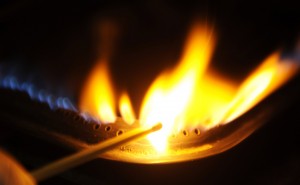Burning Question: Does Fracking Cause Earthquakes?
Yesterday, we began answering your burning questions about natural gas drilling, with a post delving into the “who, what, where, when and why” of water testing. Here’s part two of our series:
The second of our burning questions comes from Deb Stone. Stone wants to know if there have been any studies looking at the link between fracking and earthquakes. This became a huge buzz lately when a 5.9 earthquake struck Mineral, Virginia. East Coasters aren’t used to earthquakes, certainly not that large, so many speculated there was a connection. Industry spokespeople said no fracking way did drilling cause the Virginia quake.
Jim Coleman, a geologist with the U.S. Geological Survey told StateImpact that injecting fluid under high pressure does cause measurable seismic activity. But he says the earthquakes are typically too small to be noticed and didn’t think there was any evidence that fracking would have caused the Virginia quake.
The quick answer to Deb’s question is yes, but those studies have linked deep well injections, which is part of natural gas production, with earthquakes. Some studies looking at the earthquake connection to fracking are ongoing. Scientists with the British Geological Survey are studying the link between small earthquakes near Backpool, England, and fracking. All drilling in the area was halted after two earthquakes occurred about a month apart in the spring of 2011.
Just last week, Arkansas regulators banned the use of deep injection wells to store wastewater after they found the activity caused a rise in small earthquakes last winter. The Arkansas Geological Survey told the AP last July that seismic activity decreased dramatically once the wells were shut down. The Arkansas Oil and Gas Commission has not banned fracking, only the use of wells to dispose of wastewater.
More than 40 years ago, a study conducted by the U.S. Geological Survey attributed a 5.3 magnitude earthquake in 1967 to a large injection well at the Rocky Mountain Arsenal in Denver, Colorado. Several smaller earthquakes followed the larger one.
A more recent study by Southern Methodist University and the University of Texas also linked a rash of small earthquakes in the Dallas-Fort Worth area in 2008 and 2009 to deep injection wells used to dispose of natural gas wastewater. But as the study’s authors pointed out, many similar wells operated in areas where no seismic activity occurred.
The Army Corps of Engineers has expressed concern about drilling for natural gas near dams and has a national team studying the potential impact. The Corps has requested a 3000 foot buffer around dams because it worries that fracking near fault lines could cause earthquakes or shifts in sediment that would weaken dam structures. CBS 11 News in Dallas reports that the Corp’s Fort Worth district wrote a letter in September to town officials in Grand Prairie, Texas warning them that a nearby Chesapeake Energy gas well site could potentially cause a “catastrophic dam failure.”

















